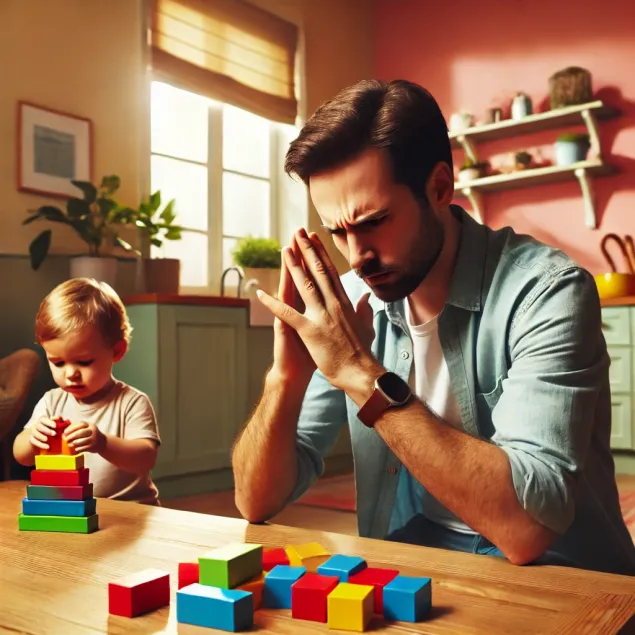182
How to stop falling for a child

Sometimes it seems that the life of a modern parent is an endless test.
On the one hand, you want to give your child the best: love, support, a sense of security.
On the other – stress at work, household chores and own fatigue
Sometimes we can’t stand it and break down on the closest person.
Then we feel guilty and don’t know how to break this cycle.
The more you yell at your child, the worse it starts to behave.
And the harder your nerves get.
But the good news is that there are real ways to communicate.
From "loud to maximum" mode to a calm and constructive format.

Why are we breaking up?
There are several psychological reasons why parents may cry out.
And take it out on the baby:
- Emotional burnout. Mom or dad who doesn’t have time for rest and self-interest
They quickly lose patience. In this state, even a minor prank of a child can cause a storm of indignation. - Educational "scripts" from childhood. If in your family it was customary to communicate in high tones,
This scenario is likely to be inherited. - Feeling like you can't hear. Screaming is often the last attempt to reach out to a child when it seems
Peaceful dialogue is not working. - Lack of anger management skills. Finally, we may not know how to express tension differently.
except to raise your voice or swear.
What are the dangers of cries and breakdowns
Parental screaming not only hurts the child emotionally.
It also creates the wrong communication models.
The child begins to feel guilty just for what he is.
At an older age, he may respond in the same way - aggression and rudeness.
The cry paralyzes the child's psyche: instead of explaining,
What is wrong and teach the child better behavior,
We're actually teaching him that "shouting is okay."
The result is that the little person learns to defend themselves either by withdrawing or by reacting with anger.

Six Strategies to Avoid Disruptions
- Make "pauses" in time.
If you feel that your anger is growing like a snowball, allow yourself a time-out.
Go to the next room, take a deep breath and exhale several times.
Those few seconds can be crucial.
So that you don't cross the line and fall for the baby. - Observe sleep and rest.
When we are overworked, self-control drops to almost zero.
Try to organize your day so that you have at least short periods of time for yourself:
Drink tea, listen to your favorite music or even just sit in silence. - Communicate at eye level.
If the child does not respond to your comments, try to stand up or sit on the same level with him.
Look into your eyes and calmly say what is bothering you.
This removes the “adult from above, child from below” barrier and creates an emotional connection. - Use “messages” instead of reproaches.
For example, instead of “You don’t listen to me!” say “I get upset when people don’t listen to me.”
Let's try to resolve this together.” This approach teaches the child to understand your feelings.
It's not just to feel accused. - Limit the negative impact of gadgets and noise.
If the TV is always on while you’re trying to cook at the same time,
Checking messages and keeping an eye on the child, stress is inevitable.
Try to create a more peaceful environment.
Turning off background noise and allocating specific time for gadgets. - Look for helpers and be flexible.
Do not hesitate to ask loved ones (grandparents, grandmothers, friends) to sit with your child.
While you are minding your own business or recovering emotionally.
Delegating responsibility helps reduce stress.

How to react if a breakdown has occurred
We are not robots, and there are times when there are no “strategies.”
And you raise your voice to the child. In this case, it is important as soon as possible.
Show your parental maturity:
- Admit the mistake. Tell your child that you are upset and sorry.
This not only relieves some of the tension, but also teaches children an important lesson:
Everyone can make mistakes, but it is important to be able to admit guilt. - Hug and talk. Explain exactly what made you angry:
“Sorry, I yelled at you because I was very tired, but it’s not your fault.”
Such an act builds trust, and the child becomes easier to understand.
Parents do not shout because of “evil character”, but because of coincidence. - Draw conclusions. Try to find a way to prevent similar situations in the future.
It may make sense to change your daily routine, ask for help, or set clear rules.
It's a fun time.
Trust comes first.
The main goal of ecological parenting is to maintain a trusting bond with the child.
When you talk without shouting, calmly explain the reasons for the prohibitions or your own discontent.
Your child understands you better and listens more.
And most importantly, he feels loved and respected, even if he makes a mistake.
Education is not just about setting rules and hierarchy.
First and foremost, a solid foundation for lifelong relationships.
Of course, to stop breaking down on the child instantly is not an easy task.
But small steps toward a calmer relationship can help break the cycle of guilt and despair.
When you learn to maintain your composure and make time for your own rest,
The family atmosphere will be more harmonious.
Instead of fear and misunderstanding, the child will feel support and love.
That will lay the foundation for his happy future.























